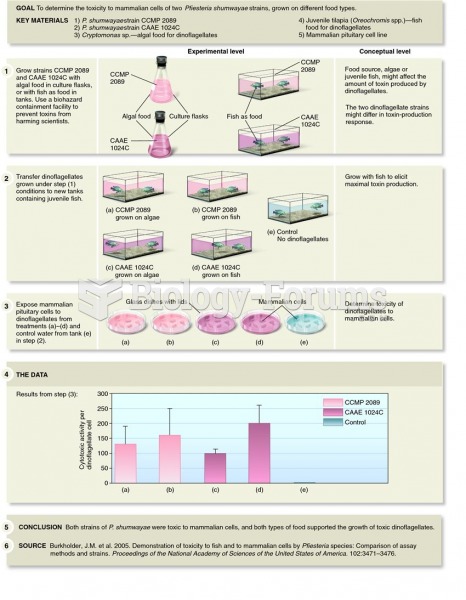|
|
|
Today, nearly 8 out of 10 pregnant women living with HIV (about 1.1 million), receive antiretrovirals.
Earwax has antimicrobial properties that reduce the viability of bacteria and fungus in the human ear.
Nearly all drugs pass into human breast milk. How often a drug is taken influences the amount of drug that will pass into the milk. Medications taken 30 to 60 minutes before breastfeeding are likely to be at peak blood levels when the baby is nursing.
Over time, chronic hepatitis B virus and hepatitis C virus infections can progress to advanced liver disease, liver failure, and hepatocellular carcinoma. Unlike other forms, more than 80% of hepatitis C infections become chronic and lead to liver disease. When combined with hepatitis B, hepatitis C now accounts for 75% percent of all cases of liver disease around the world. Liver failure caused by hepatitis C is now leading cause of liver transplants in the United States.
Fewer than 10% of babies are born on their exact due dates, 50% are born within 1 week of the due date, and 90% are born within 2 weeks of the date.
 Burkholder and colleagues demonstrated that some strains of Pfiesteria shumwayae are toxic to fish a
Burkholder and colleagues demonstrated that some strains of Pfiesteria shumwayae are toxic to fish a
 As sessile organisms, plants have evolved many mechanisms to mitigate the potential damage of abioti
As sessile organisms, plants have evolved many mechanisms to mitigate the potential damage of abioti





